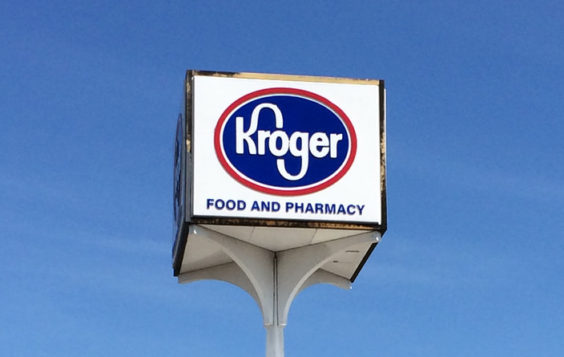
As Kroger systematically killed off double coupons in most of its regions last year, executives complained several times that the promotion was just too costly. “It’s a very expensive reward proposition that a very small number of your customers actually engage in,” Kroger CFO Michael Schlotman told an investors conference last May. And yes, matching the value of manufacturer’s coupons up to 50 cents, out of your own pocket, can certainly get expensive.
But then so can paying your CEO more than $12.7 million.
That’s how much Kroger chairman and recently retired CEO David Dillon made in 2013. With that kind of money, you wouldn’t have to use coupons at all, much less care whether they double or not. And with grocery prices creeping up, and coupons and promotions not as good as they used to be, if you think $12.7 million seems like way too much money to give to the man in charge, you’re in good company. Because Dillon himself thinks so, too.
“I don’t really defend that amount, it even seems ludicrous to me,” Dillon told a panel discussion in Aspen, Colorado last month. A video of the panel has languished on YouTube for weeks, with few views, until someone at the business website Quartz watched it and ran a story this week headlined “This major U.S. corporate chieftain has the honesty to call his own pay ‘ludicrous’.”
“I personally believe that, generally speaking, executive pay has gotten too high, and it needs to be addressed in appropriate ways,” Dillon told Quartz in a followup interview. He was quick to add, though, that his total pay last year – a mere $1.3 million base salary, plus generous bonuses, stock and other compensation – was low compared to other corporate leaders.
And he’s right about that. In the retail sector alone, the CEO of CVS really cleaned up in 2013, with a cash and stock compensation package worth a whopping $22.9 million. According to the compensation data company PayScale, Larry Merlo’s $12.1 million in cash earnings alone is 422 times the median wage for CVS employees. When you add the value of his stock into the equation, Merlo’s annual compensation could pay the salaries of nearly 800 additional CVS associates.
Consider that, the next time you shop at a particularly understaffed CVS store.
Of course, we live in a free market system, so companies can pay their leaders whatever they’d like. And many entertainers and athletes make much more than even the highest-paid retail CEOs, who at least serve an important function in providing you with a place to buy food to feed your family (which is more than you can say about your average Kardashian).
Dillon, for one, said he urged his own company’s compensation board to show some restraint and not reward him too lavishly. Yet, he admits, “when I look at what’s expected typically of a CEO, the life expectancy, the lack of job security, the 7-by-24 commitment, I don’t dispute that they ought to be paid really well.”
But a justification for what Kroger and other companies’ top executives are making, doesn’t necessarily take the sting away for those who are now paying that much more at Kroger with mere face value coupons. Of course, shoppers who don’t like the fact that their store’s leaders are living high on the hog while they’re clipping coupons and living on a budget, can choose to shop somewhere else if they’d like. At the same time, if it means keeping the shareholders happy, retail executives can choose to boost their bottom line by cutting out things like double coupons, if they’d like.
“It was the right thing to do, because so few people engaged in double coupons, and it was expensive for those that did it,” Schlotman told a retail conference last year, about the decision to phase out doubling coupons.
Of course, that’s coming from a man who made just $3.8 million as CFO last year. But then who’s counting?











Kroger should resume double couponing and keep it permanent due to the customers that shop there due to more competition and the stores that have still doubke